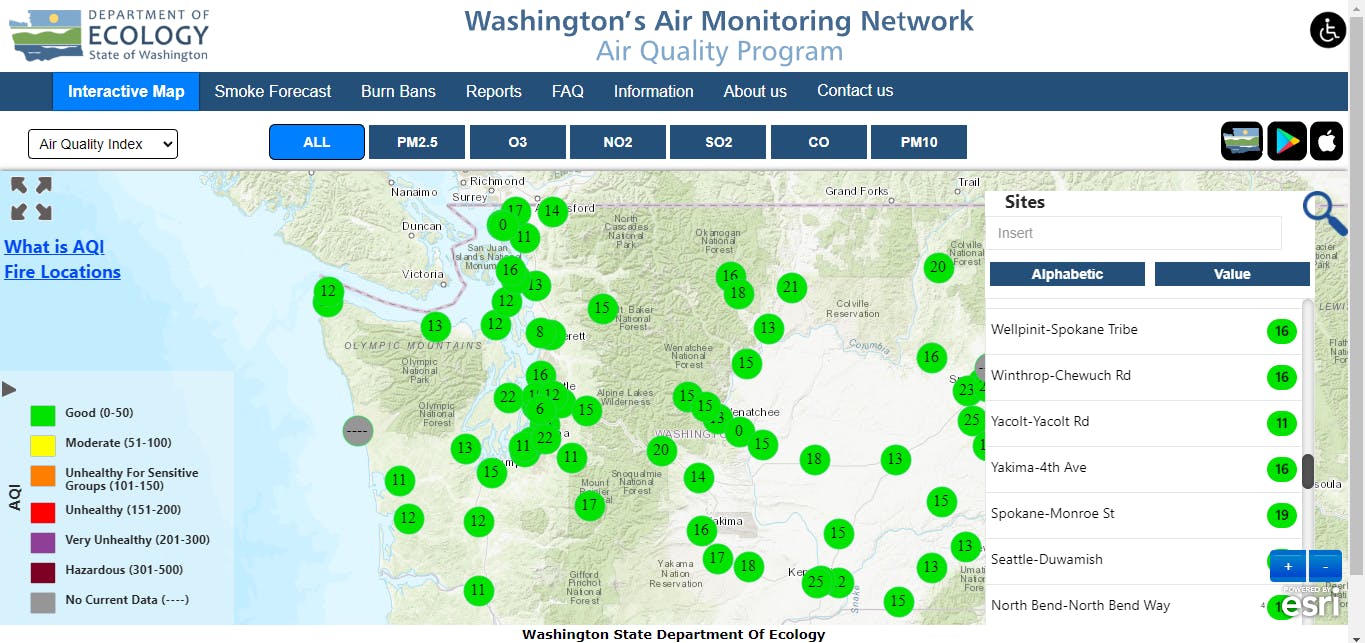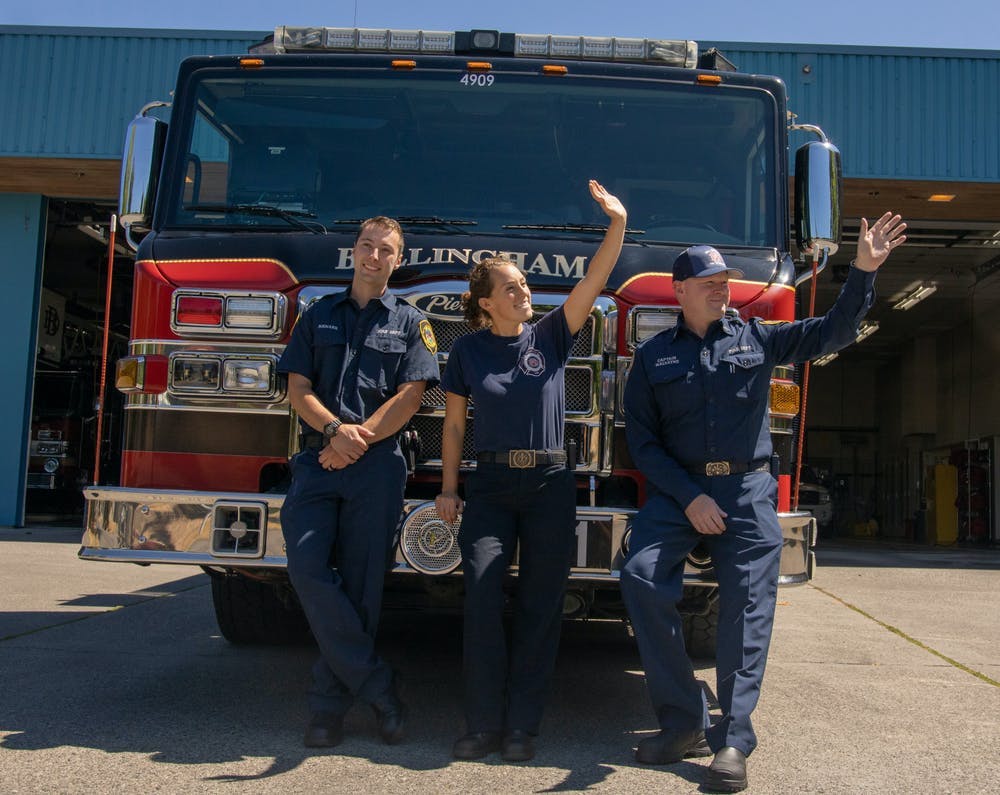After a year of navigating the challenges of on-campus living in a pandemic, no one anticipated the record-breaking heatwave and subsequent wildfires the summer of 2021 would bring.
While the Western Washington University community as a whole made it through the heatwave, students living on campus were largely left to fend for themselves due to a lack of preparedness on the part of the university, according to Caitlin Millard, a former Apartment Adviser in Birnam Wood.
“I feel like a lot of people in Western Washington don’t really pay too much mind to [fire season] unless it’s really overwhelming or if there’s warnings about it,” Millard said.
When Millard and their coworker didn’t receive any directions or resources for students from Residence Life or university administration, they took it upon themselves to provide a cooling station in Birnam with air conditioning, water and masks to help beat the heat, they said.
This summer, the projections for wildfire season are much lower due to a wet spring and significant snow accumulation during the winter, according to Jonah Stinson, emergency management plans coordinator for the City of Bellingham. This makes the summer the ideal time to prepare for future fire seasons by learning how to deal with smoke and heat.
Holly Woll-Salkeld, Western’s environmental health and safety officer, recommends checking Washington’s Air Monitoring Network for updates from the Air Quality Index (AQI) and smoke forecasts. If the air is smoky and the air quality is low, Salkeld encourages community members to stay inside in well-ventilated areas with filtered air. Due to the pandemic, most of the academic buildings on campus were upgraded with better ventilation and filtration, she said.

The Air Quality Index of Washington state, taken July 23. The AQI is updated every hour. // Image courtesy of Washington State Department of Ecology
However, if those on campus are still concerned about air quality, the Whatcom County Health Department recently sent out instructions on how to create a homemade air filter by attaching a heater filter to a box fan. According to the Puget Sound Clean Air Agency, the homemade air filters effectively filter a significant percentage of black carbon from the room where the fan is located after less than an hour of usage. According to rough estimates from The Front, a homemade air filter can be constructed for under $100.
Sue Sullivan, the health department’s environmental health manager, encouraged people to get the supplies for an air filter now instead of waiting until the next wildfire.
“Trying to get those things when it’s happening could be too late,” she said. “Trying to be prepared way ahead of time will ease stress and anxiety when the time comes that you do need it.”

A graph showing the efficiency of indoor black carbon filter fans in relation to outside carbon levels. When the Puget Sound Clean Air Agency ran tests of the homemade air filters, they found that in a small room with the doors and windows closed, the filters were highly effective at trapping black carbon. // Image courtesy of Puget Sound Clean Air Agency
If people need to travel or be outside while air quality is low, Sullivan encourages them to wear an N95 mask with a tight fit to keep out smoke particles. However, this depends on whether or not someone has any preexisting conditions like asthma or COPD, as this can make breathing worse, she said.
After their experiences last summer, Millard said there needs to be more preparations and supports in place to help the Western community through the next wildfire season.
“This is something that is going to continue to be an issue and probably will become more of an issue moving forward with climate change,” they said.
Matthew Phillips (he/him) is a campus news reporter for The Front. He is majoring in psychology and minoring in journalism. When not reporting, Matthew enjoys watching movies, reading, cooking, talking endlessly about his love for cats, and trying to befriend the raccoons on campus. You can reach him at matthewphillips.thefront@gmail.com.






